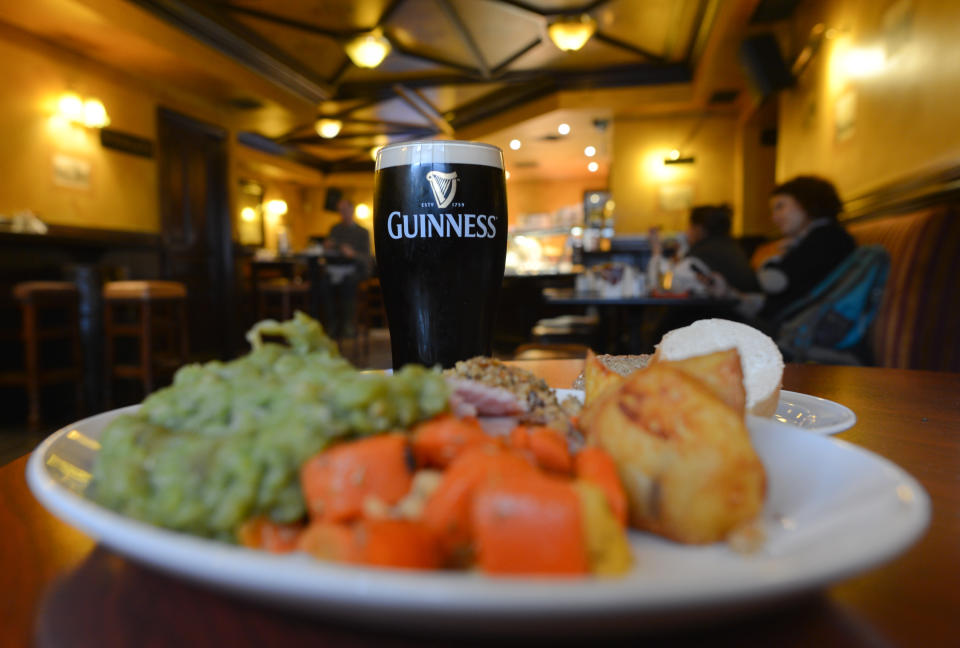Food now bigger than booze in Britain's pubs, new data shows

Almost 30 years after the first ‘gastropub’ opened its doors, Britain’s pubs now employ more people handling food than drink.
New data shows chefs and food servers have overtaken bar staff in Britain’s pubs for the first time.
43.8% of staff at pub and bar companies work in catering, according to the Office for National Statistics (ONS), while just 28.9% do bar work.
The figures were almost the polar opposite in 2003. Back then, four in 10 employees were bar staff and just under three in 10 were involved in food.
The Sunday roast has long been a staple of many pubs but food has become a 7-day-a-week feature at boozers over the last few decades.
The Eagle pub in East London is credited with inventing the term ‘gastropub’ in 1991 when new owners put food front and centre. At the other end of the market, chains like JD Wetherspoon (JDW.L) also pioneered the idea of eating at the boozer with offers like its Thursday curry club. Pub dining has become so ubiquitous that celebrity chef Tom Kerridge has been able to build an entire career on the back of it.
READ MORE: Pub numbers are finally rising — but small locals are still at risk
The ONS said the shift reflected “changing consumer habits.” Data shows people have been spending less on drinking out and more on eating out in recent years. The rate of drinking among young people has also started to decline.
Embracing food has helped lift the pub sector to its best performance since the financial crisis, the ONS said. Britain’s bar and pub sector took in £23.2bn ($30.3bn) in 2017, the highest total since 2008.
ONS data showed the number of people employed in the sector has also risen sharply over the last 10 years despite a long-term decline in the number of pubs. 457,000 people now work in pubs and bars across Britain, almost 70,000 more than a decade ago.
In December, the ONS said the number of British pubs had risen for the first time in a decade. The statistics body said on Thursday that locals — small pubs with fewer than 10 staff — helped spur the growth. Small pubs grew in Britain for the first time in 15 years last year.
“While smaller pubs have been struggling to survive in recent years, bigger pubs have been growing in number,” senior ONS statistician Hugh Stickland said.
“This growth has been driven by food rather than drink and we’ve seen a big rise in the number of people employed as pub kitchen and waiting staff.”

 Yahoo Finance
Yahoo Finance 